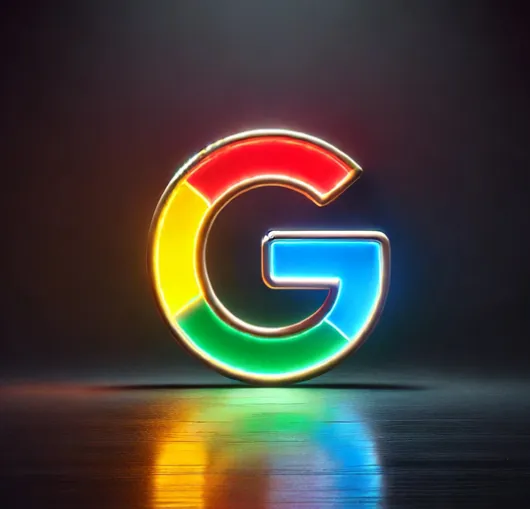The Debate: Digital Marketing OR Traditional Marketing? Which Is Better?
In the ever-evolving world of business, marketing strategies have undergone significant transformations. With the arrival of digital marketing, businesses are faced with the crucial decision of choosing between traditional marketing and digital marketing. This article explores the core aspects of both marketing methods, highlighting their differences, advantages, and ultimately, which approach may be more beneficial for today’s businesses.
What is Traditional Marketing?
Traditional marketing encompasses the conventional methods that have been used by businesses for decades to promote their products and services. These methods are often tangible and can be physically experienced by the target audience.
The primary channels of traditional marketing include Print media which includes newspapers, magazines, brochures, and flyers. These materials are distributed to a broad audience and can be physically held and read at the convenience of the consumer. Print ads can be visually appealing, with vibrant images and compelling text designed to capture attention.
Television and radio have been dominant forces in traditional marketing. Television commercials utilize audio-visual elements to create memorable experiences, while radio ads rely on sound to engage listeners. These mediums can reach a wide audience and are particularly effective for brand awareness.
Direct mail involves sending promotional materials directly to consumers’ homes. This method allows for a high level of personalization and can target specific demographics based on geographic locations. Examples include catalogs, postcards, and promotional letters.
Billboards, posters, and banners placed in high-traffic areas are designed to capture the attention of a large number of people. These advertisements are usually bold and visually striking to make an immediate impact on passersby.
Telemarketing involves reaching out to potential customers via phone calls. This direct approach allows businesses to engage with consumers personally, providing detailed information about products or services and addressing any queries they may have.
Participating in trade shows, exhibitions, and sponsoring events allows businesses to interact directly with potential customers. These face-to-face interactions help build personal connections and foster brand loyalty.
What is Digital Marketing?
Digital marketing leverages the internet and various digital platforms to promote products and services. This modern approach to marketing is highly dynamic and versatile, offering numerous strategies to engage with potential customers. Key components of digital marketing include:
- Search Engine Optimization (SEO)
SEO involves optimizing website content to rank higher in search engine results pages (SERPs). This increases the visibility of a website, driving organic traffic from users searching for related topics or products.
- Content Marketing
Content marketing focuses on creating and distributing valuable, relevant content to attract and engage a target audience. This includes blog posts, articles, videos, infographics, and more, all designed to provide useful information and build trust with the audience.
- Social Media Marketing
Utilizing social media platforms like Facebook, Instagram, Twitter, and LinkedIn, businesses can reach and interact with a large audience. Social media marketing includes both organic posts and paid advertisements, fostering direct communication with consumers.
- Email Marketing
Email marketing involves sending targeted emails to potential and existing customers. These emails can promote products, offer deals, and maintain customer relationships by providing valuable content and updates.
- Pay-Per-Click (PPC) Advertising
PPC advertising involves placing ads on search engines and social media platforms, where advertisers pay a fee each time their ad is clicked. This method can drive immediate traffic to websites and is highly measurable.
- Affiliate Marketing
Affiliate marketing entails partnering with other businesses or individuals to promote products. Affiliates earn a commission for each sale generated through their referral, creating a mutually beneficial relationship.
- Influencer Marketing
Collaborating with influencers who have a significant following can amplify a brand’s reach. Influencers promote products to their audience, leveraging their credibility and relationship with their followers.
Advantages of Digital Marketing
- Global Reach
Digital marketing offers several distinct advantages over traditional marketing methods, making it a crucial component for businesses in today’s digital age. One of the most significant benefits is its global reach. Unlike traditional marketing, which is often confined to a specific geographic area, digital marketing breaks down these barriers, allowing businesses to connect with potential customers from all corners of the world. This capability is particularly beneficial for companies looking to expand their market presence internationally, enabling them to tap into new and diverse customer bases without the significant costs associated with global advertising campaigns.
- Cost-Effective
Cost-effectiveness is another major advantage of digital marketing. Traditional marketing methods, such as TV and radio ads, print media, and billboards, can be prohibitively expensive, especially for small businesses with limited budgets. In contrast, digital marketing offers various affordable options, such as social media advertising, pay-per-click (PPC) campaigns, and email marketing. These methods allow businesses to start small and scale their efforts as needed, ensuring that marketing budgets are used efficiently. The cost per customer acquisition is generally lower with digital marketing, making it a more attractive option for businesses aiming to maximize their return on investment.
- Measurable Results
One of the standout features of digital marketing is the ability to measure results accurately and in real-time. With tools like Google Analytics, businesses can track the performance of their campaigns, monitor website traffic, and analyze user behavior. This data-driven approach allows for immediate adjustments to be made to optimize campaigns for better performance. Unlike traditional marketing, where the impact of an advertisement can be difficult to measure, digital marketing provides clear metrics that demonstrate the effectiveness of each campaign. This transparency is invaluable for businesses looking to refine their strategies and ensure their marketing efforts are yielding the desired results.
- Targeted Marketing
Digital marketing also excels in targeted marketing, allowing businesses to reach specific audiences based on detailed demographic, interest, and behavioral data. Platforms like Facebook, Instagram, and Google Ads provide sophisticated targeting options that enable marketers to tailor their messages to the right people at the right time. This precision ensures that marketing efforts are focused on individuals who are most likely to be interested in the product or service, thereby increasing the chances of conversion and reducing wasted ad spend.
- Engagement
Engagement is another key advantage of digital marketing. Traditional marketing methods are typically one-way communications, where businesses broadcast their messages without direct interaction with the audience. Digital marketing, on the other hand, facilitates two-way communication, allowing businesses to engage with their customers through social media platforms, blogs, and forums. This interaction fosters stronger relationships and loyalty, as businesses can respond to customer inquiries, address concerns, and build a community around their brand. Engaging content such as videos, polls, and live streams further enhances this connection, making customers feel valued and heard.
- Variety of Channels
The variety of channels available in digital marketing is unparalleled. Businesses can choose from a wide range of platforms to promote their products and services, including social media, email, content marketing, SEO, and PPC. Each channel offers unique advantages and can be used in combination to create a comprehensive marketing strategy. This diversity allows businesses to reach their audience in multiple ways, reinforcing their message and increasing overall effectiveness.
- Adaptability
Adaptability is another significant benefit of digital marketing. The digital landscape is constantly evolving, and marketing strategies must be flexible to stay relevant. Digital campaigns can be quickly adjusted based on performance data, allowing businesses to pivot their strategies in response to market trends and consumer behavior. This agility ensures that marketing efforts remain effective and aligned with business goals, even in a rapidly changing environment.
- Higher Conversion Rates
Higher conversion rates are often achieved through digital marketing due to its targeted and interactive nature. By reaching the right audience with personalized messages and engaging content, businesses can significantly improve their conversion rates. The ability to retarget users who have previously shown interest in a product or service also contributes to higher conversion rates, as these individuals are more likely to make a purchase. Additionally, the use of persuasive techniques such as social proof, testimonials, and limited-time offers can further boost conversion rates in digital campaigns.
Major Differences Between Digital Marketing and Traditional Marketing
How Are They Different?
There are numerous differences between digital and traditional marketing, some of the major differences being:
- Reach and Targeting
- Cost and ROI
- Interactivity and Engagement
- Flexibility and Adaptability
- Content and Conversion
- Building Brand Recognition
| Difference | Traditional Marketing | Digital Marketing |
| Reach & Targeting | Limited by geography, costly to reach a wide audience, targets broad audience without precise segmentation | Global reach with precise targeting using tools like Google Analytics and social media insights, allowing segmentation based on age, gender, location, interests, and behaviors |
| Cost & ROI | Expensive (TV, radio ads, print ads, billboards), challenging to measure ROI | More cost-effective, customizable budgets (PPC, social media, email campaigns), clear metrics and analytics for accurate ROI measurement, real-time campaign adjustments |
| Interactivity & Engagement | One-way communication channel, consumers passively receive messages, difficult to gauge consumer reactions | Interactive, enables direct engagement with audiences on social media, blogs, and forums, fostering two-way communication, instant feedback, and stronger relationships |
| Flexibility & Adaptability | Difficult and costly to change campaigns once launched | High flexibility, campaigns can be adjusted instantly based on performance data, ensuring strategies remain effective and relevant |
| Content & Conversion | Relies on visual and auditory appeal, aims for quick attention capture, can create strong brand recognition but limited in driving conversions | Emphasizes valuable content (blogs, videos, social media posts), provides in-depth information, educates and engages the audience, nurtures leads through the sales funnel, resulting in higher conversion rates due to informed purchasing decisions |
| Building Brand Recognition | Builds brand recognition through repeated exposure in high-traffic areas or popular media, requires substantial investment | Amplifies brand recognition through social sharing, viral content, and influencer partnerships, organic spread enhances brand visibility and reputation, effective even with smaller budgets |
Advantages of Digital Marketing Over Traditional Marketing
- Global Targeting
One of the most significant advantages of digital marketing is its ability to target potential customers across the globe. Unlike traditional methods that are often geographically restricted, digital platforms allow businesses to reach international audiences effortlessly. This global reach opens up new markets and opportunities for growth, especially for businesses looking to expand their presence beyond local borders.
- Optimized Campaigns and Measurable ROI
Digital marketing enables businesses to optimize their campaigns for maximum impact. Real-time data and analytics provide insights into what strategies are working and which ones need adjustment. This continuous optimization ensures that marketing efforts are always aligned with business goals. Furthermore, digital marketing offers precise tracking of ROI, allowing businesses to measure the effectiveness of their campaigns accurately and make data-driven decisions.
- Precision Targeting
With digital marketing, businesses can target their ideal customers with pinpoint accuracy. Platforms like Facebook Ads and Google Ads offer advanced targeting options based on demographics, interests, behaviors, and more. This precision targeting ensures that marketing messages reach the most relevant audience, leading to higher engagement and conversion rates.
- Breaking Down Barriers for Real Conversations
Digital marketing breaks down traditional barriers by facilitating real conversations with audiences. Social media platforms, live chats, and interactive content allow businesses to engage directly with customers, answer their questions, and address their concerns in real-time. This level of interaction builds trust and fosters strong, long-term relationships.
- Experimentation with Various Channels and Strategies
Digital marketing allows for experimentation with various channels and strategies. Businesses can test different approaches, such as SEO, PPC, social media, and content marketing, to see what resonates best with their audience. This flexibility leads to more innovative and effective marketing campaigns, as businesses can quickly adapt to changing trends and consumer preferences.
- Thriving on Valuable Content
Content is the cornerstone of digital marketing. Providing valuable, relevant content helps attract and retain customers. Whether through blog posts, videos, or social media updates, quality content educates, entertains, and engages audiences, driving traffic and conversions. This focus on content builds authority and trust, positioning businesses as thought leaders in their industry.
- Higher Conversion Rates
Digital marketing boasts a significantly higher conversion rate than traditional methods. The ability to target specific audiences, coupled with interactive and engaging content, leads to more conversions. Customers are more likely to take action when they feel connected to the brand and see the value in the offerings. Digital marketing strategies such as retargeting also help in converting hesitant prospects into customers.
- Creating Buzz and Brand Recognition
When content gets shared and discussed online, it creates a buzz that propels brand recognition. Viral content, influencer collaborations, and social media shares amplify brand visibility, reaching wider audiences and enhancing the brand’s reputation. This organic spread can significantly boost brand awareness without the need for extensive advertising budgets.
- Demonstrating Value for Investment
Digital marketing allows businesses to demonstrate the value they’re getting for their investment. Detailed analytics and performance reports show how campaigns are performing, what’s driving traffic and conversions, and where improvements can be made. This transparency ensures that marketing efforts are aligned with business goals and deliver tangible results. Businesses can make informed decisions based on real-time data, ensuring that their marketing budgets are used effectively.
Which is Better? Digital Marketing or Traditional Marketing?
Digital marketing surpasses traditional marketing due to its unparalleled ability to target a global audience with precision, its cost-effectiveness, and its capacity for real-time performance tracking and adaptability. Unlike traditional methods, digital marketing provides detailed analytics and insights, enabling businesses to optimize campaigns for maximum ROI. Its interactive nature fosters stronger customer relationships and loyalty, while the variety of digital channels allows for a diversified and robust marketing strategy. These advantages collectively result in higher conversion rates and more effective use of marketing budgets, making digital marketing the superior choice for modern businesses.
Digital Gravity is a leading digital marketing agency in UAE, and stands at the forefront of the digital marketing revolution. As a modern and fully-functioning agency based in Dubai, Digital Gravity offers a comprehensive suite of digital marketing services tailored to drive growth and success in today’s competitive landscape.
With expertise in SEO, PPC, social media marketing, content creation, and more, Digital Gravity ensures that businesses not only reach their target audience but engage them effectively and convert interactions into meaningful results.
Digital Gravity’s data-driven approach, combined with cutting-edge strategies, guarantees measurable outcomes and a higher return on investment. For businesses looking to harness the full potential of digital marketing, Digital Gravity provides the expertise and innovation needed to elevate their brand and achieve sustained growth.









